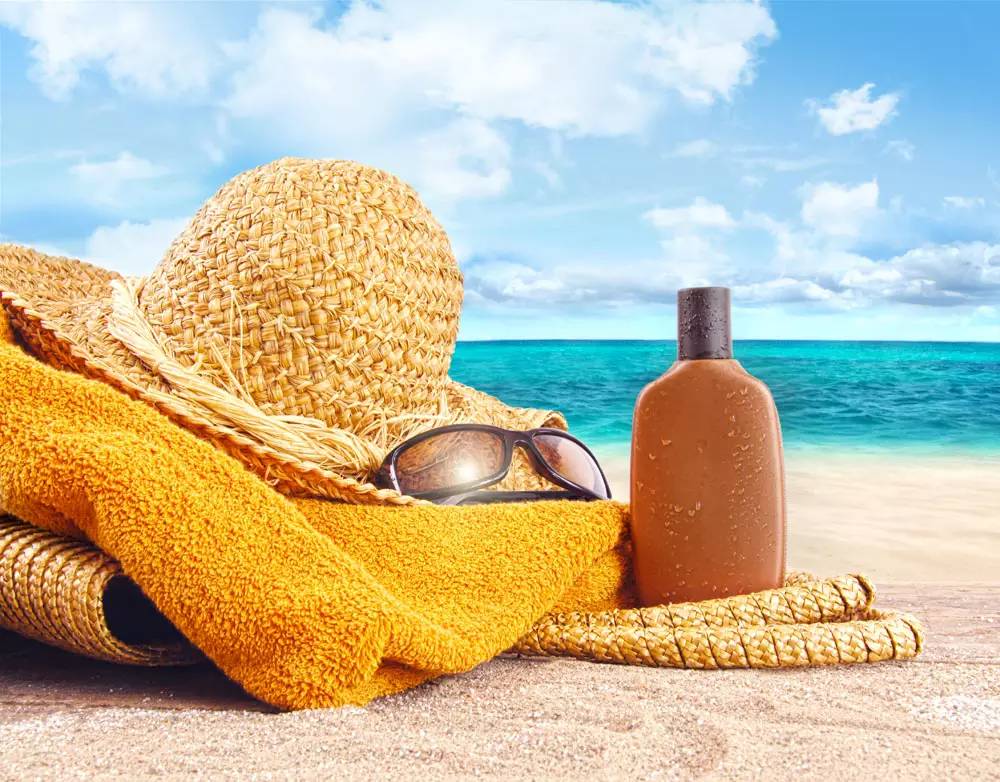(单词翻译:单击)
听力文本
This is Scientific American — 60-Second Science. I'm Christopher Intagliata.
Last time you hit the beach—and yeah, probably seems like a distant memory in the currently chilly parts of the world—did you pack sunscreen? A beach umbrella? Or both?
Researchers put the two sun-protecting products to the test. First contender: a beach umbrella, which they evaluated with a spectrophotometer to see if UV rays passed through. They didn't...good sign so far. The second contender was sunscreen: 100 SPF.
Then the scientists rallied 81 people to go sunbathing at a lake outside Dallas, for three hours around mid-day. Half got beach umbrellas. The other half, all-you-can-apply sunscreen. And because this is science—not a day at the beach, eh, let me rephrase that, not a walk in the park—the participants were not allowed to take a dip.

Twenty four hours after the solar exposure—enough time for any sunburns to ripen—the researchers visually inspected the sunseekers' skin. And they found that three times as many umbrella-sitters had sunburns somewhere on their bodies, compared to their sunscreen-slathering neighbors. And since the umbrellas themselves block UV rays, the burns are likely due to UV light bouncing off the sand and other surfaces, then hitting unprotected skin. The study is in JAMA Dermatology.
The caveat? Even sunscreen users weren't completely burn-free. So the researchers—some of whom, full disclosure, work at Johnson & Johnson, which makes sunscreen—instead recommend hedging your bets. Wear a wide-brimmed hat. Sit in the shade. Use sunblock, too. To ensure you don't need that fourth strategy: aloe vera.
Thanks for listening for Scientific American — 60-Second Science Science. I'm Christopher Intagliata.
参考译文
这里是科学美国人——60秒科学。我是克里斯托弗·因塔利亚塔。
上一次你去海滩时,对于现在处于寒冷地区的人们来说这可能是个遥远的记忆,你带防晒霜了吗?带太阳伞了吗?还是两个都带了?
研究人员对这两种防晒保护品进行了测试。第一个竞争者:遮阳伞,研究人员用分光光度计评估紫外线是否可以通过。目前来看,测试结果并不理想。第二个竞争者是防晒系数为100的防晒霜。
然后,科学家召集了81个人前往达拉斯城外的湖泊,在正午时分晒3个小时的日光浴。有一半人拿着太阳伞。另一半人则涂抹防晒霜。因为这是科学实验,不是在沙滩玩一天,让我换一种说法,这不是在公园散步,所以参与者不能下海游泳。
在经过日光暴晒的24个小时以后,这段时间足以使皮肤灼伤,研究人员观察了涂抹防晒霜实验者的皮肤。研究人员发现,与涂抹防晒霜的人相比,用太阳伞防晒者出现皮肤灼伤的要多三倍。太阳伞可以阻止紫外线,但灼伤很可能是由于紫外线经沙子和其他表面反射后触及了未受保护的皮肤。该研究结果发表在《美国皮肤病学会杂志》上。
需要注意什么?防晒霜使用者也会被灼伤。所以,研究人员建议加“双保险”,其中一部分研究人员在制造防晒霜的强生公司工作。戴上宽沿帽子。坐在树荫下。当然也要涂抹防晒霜。这可以确保你不需要第四个策略:芦荟汁。
谢谢大家收听科学美国人——60秒科学。我是克里斯托弗·因塔利亚塔。
译文为可可英语翻译,未经授权请勿转载!
重点讲解
重点讲解:
1. put to the test 使经受检验;对…进行试验;
例句:The crisis put his courage and skill to the test.
这次危难是对他的勇气和技能的考验。
2. compared to 与…相比;和…比起来;
例句:Compared to many women, she was indeed very fortunate.
与许多妇女相比,她确实非常幸运。
3. due to 由于;因为;
例句:They used to have milk lakes due to overproduction.
由于产量过剩,他们过去经常出现牛奶大量剩余的状况。
4. bounce off (使)(声或光)反射;
例句:Your arms and legs need protection from light bouncing off glass.
需要保护你的手臂和双腿免受玻璃反射光线的照射。


